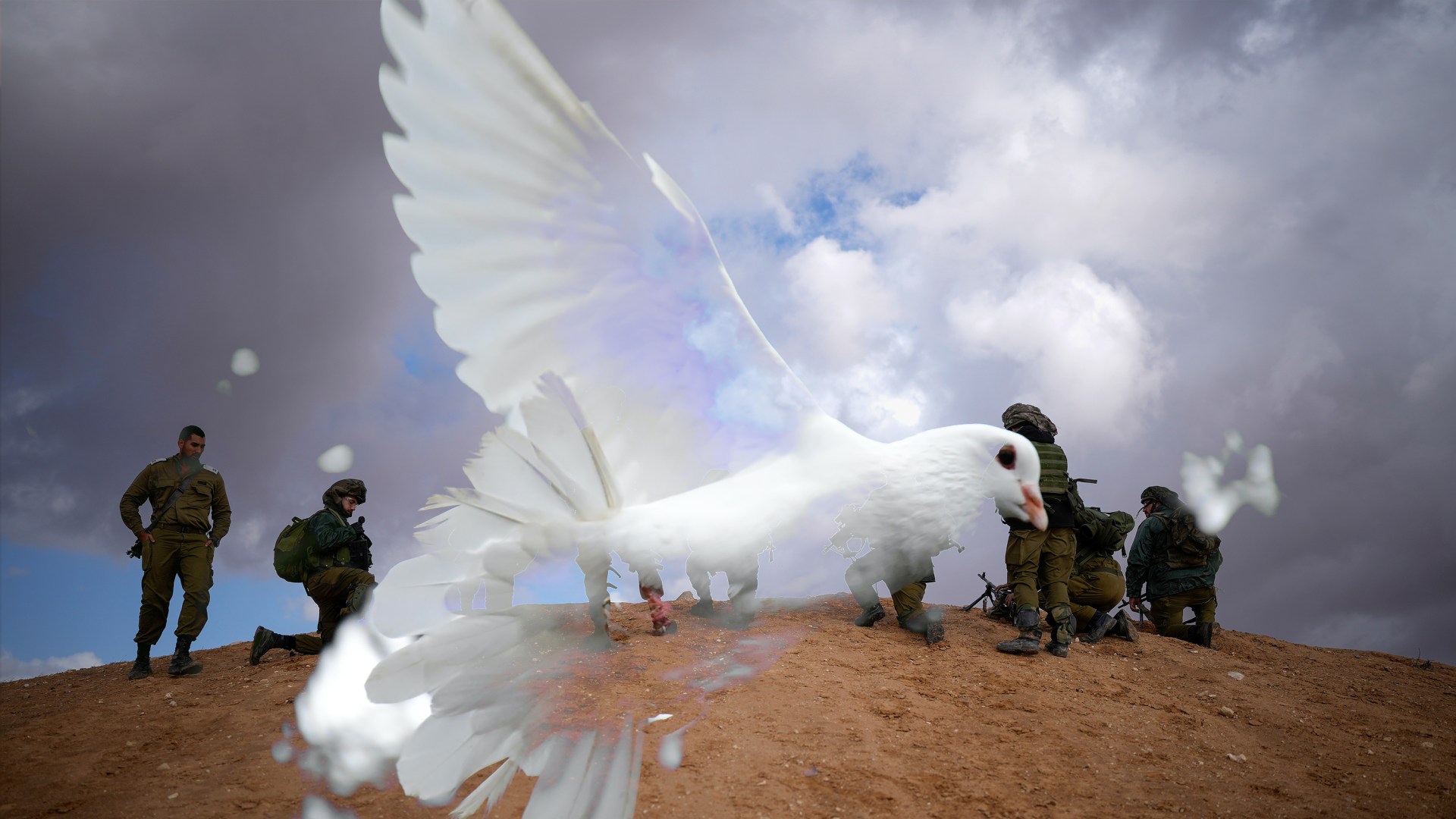Politicians and political activists are arguing about labels. Some are demonizing every Palestinian in Gaza and the West Bank: They are all terrorists or terrorist sympathizers. There are no innocents. They do not deserve to live. Others are dismissing Israeli grief after the indefensible October 7 attacks by Hamas: They are guilty of apartheid, ethnic cleansing, genocide. They got what they deserved. All are speaking of war as the path to tranquility and security: It is self-defense. It is resistance. It is our right.
In politics, the point of this debate is clear; the vocabulary we use shapes what is politically achievable. But it shapes our ethics too, and language like this traps us in an ethical vision that justifies war and bloody violence. It is not a Christian ethic, yet too many churches are caught up in applying these labels instead of providing a peaceful prophetic vision, a countercultural and distinctly Christlike stance.
Meanwhile, violence rules. People are suffering and being killed. Yet we want to celebrate Christmas. We want to look at the embodiment of perfect humanity, the baby Jesus. Can we also honor and serve him as our Prince of Peace?
Palestinians and Israelis need a call to peace to replace the drums of war. Almost 14 million people live between the Jordan River and the Mediterranean Sea. About half are Palestinians, including Palestinian Israeli citizens, and half are Jews.
War will not resolve our conflict. We have tried many wars, but the results are always the same: Peace is lost on both sides. No one truly wins. We are losing our young men and women, our children, our dignity, and even our humanity. Wars will not heal our land or our souls or our pain. Killing our neighbor will not resolve our problems.
We need instead the courage of peace. We need peace in which Palestinians and Jews can live together in equality and justice. We need peace that overcomes ethnic differences. We need the peace of Jesus Christ, the vision of a kingdom in which “he himself is our peace” and has “put to death [our] hostility” (Eph. 2:14–16).
In the season of Christmas, we remember this attribute of Christ. The birth of the Prince of Peace reminds us of a deeper truth than what we read in the headlines. We look for Magi to offer wisdom the political establishments do not have (Matt. 2:1–12). We seek peace not only between God and humanity but also between Israelis and Palestinians.
This is not a small or easy vision. It requires difficult forgiveness (Matt. 18:21–35); love for each other, including the enemy (Matt. 5:43-48); teaching godliness (2 Pet. 1:5–7); and advocating for missional justice (Isa. 1:17). Christ himself, who broke “the power of him who holds the power of death” (Heb. 2:14), is the embodiment of this vision. His life is the lesson we must keep on studying (1 Pet. 2:21, John 13:12–15).
The alternative to this true peace is false security, if not everlasting war. Already, thousands of people have been killed. Hundreds of thousands are displaced. Many are deceived and believe that killing is the only answer to the evils and injustice we see. This is a satanic lie!
The security of Israelis cannot be separated from the security of Palestinians and vice versa. We live in the same land! We are God’s gift to each other—but sadly, we have become a source of pain for each other.
This is not God’s vision for us. We must repent, stop killing each other, and build a new future in which we honor each other. God’s vision is life, not death; love, not hate; mercy, not cruelty; equality, not injustice. “He will take pity on the weak and the needy and save the needy from death,” says Psalm 72:13–14. “He will rescue them from oppression and violence, for precious is their blood in his sight.”
The global church must learn this lesson of Christ’s peace too. It must insist on life for both Palestinians and Israelis. It must affirm God’s love and mercy for both peoples. It must offer hope to both Palestinians and Israelis—not a cheap hope that bypasses forgiveness and justice, and not a political hope rooted in war, killing, hatred, and revenge.
We are now celebrating Christmas. How can we embody the Prince of Peace for both Palestinians and Israelis?
I suggest that we call for ceasefire. We serve all the ones who are hurting. We pray for a long-term solution in which Palestinians and Israelis can live together in peace. We empower the people of God in the land—both Messianic and Palestinian Christians—to keep the faith and follow Christ who taught us to love our enemies, forgive our killers, and create a new kingdom of “righteousness, peace and joy in the Holy Spirit” (Rom. 14:17).
This is a Christmas call. May God have mercy on all of us.
Yohanna Katanacho is currently the academic dean at Nazareth Evangelical College and a visiting professor at Regent College in-Vancouver. He is a Palestinian Israeli evangelical who studied at Bethlehem University (BS), Wheaton College (MA), and Trinity Evangelical Divinity School (MDiv, PhD). He is the author of several books including Praying through the Psalms and Reading the Gospel of John through Palestinian Eyes.














